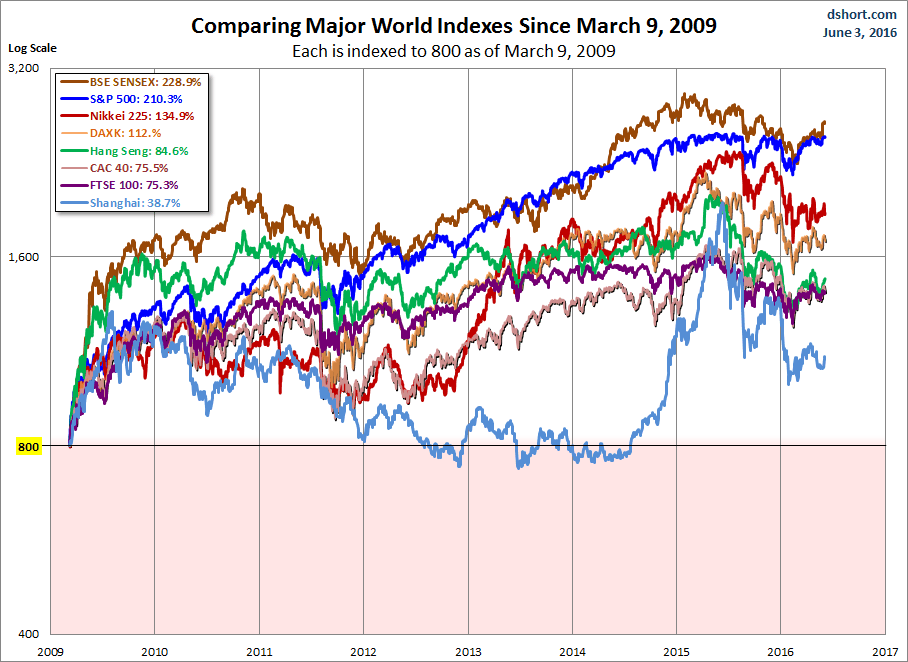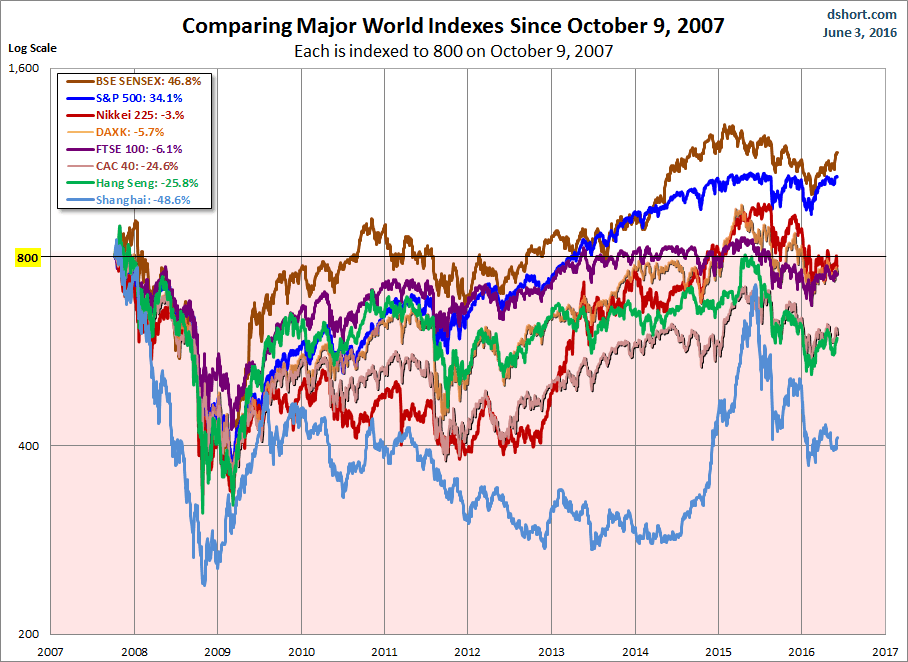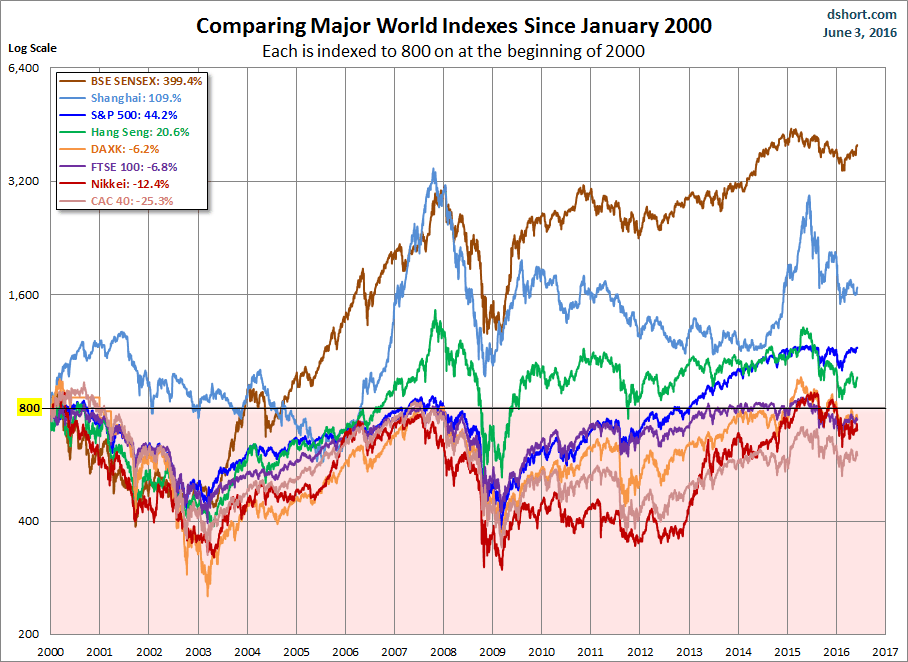Technically speaking, four of the eight indexes on our world watch list posted week-over-week gains, but that requires calculating the gains to three decimal places to illustrate the S&P 500's membership in the foursome. China's Shanghai Composite snapped a six-week losing streak to finish on Friday as the top performer with its 4.17% rally. Two other Asian indexes, the Hang Seng and SENSEX also posted gains (ahem, along with the S&P 500). The three European indexes, along with the Japan's Nikkei, were the week's losers.
A Closer Look at the Last Four Weeks
The tables below provide a concise overview of performance comparisons over the past four weeks for these eight major indexes. We've also included the average for each week so that we can evaluate the performance of a specific index relative to the overall mean and better understand weekly volatility. The colors for each index name help us visualize the comparative performance over time.

Year-to-Date Performance
Here is an overlay of the eight illustrating their comparative performance so far in 2016.
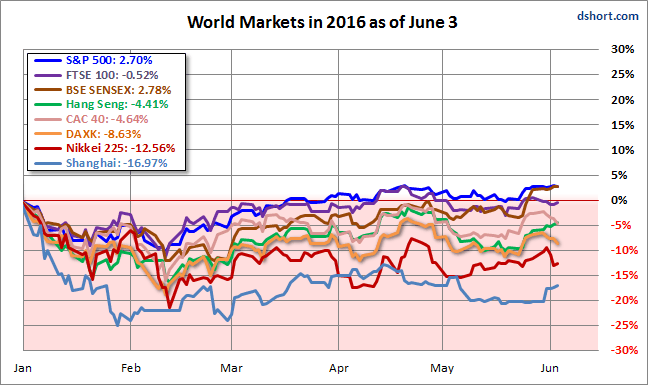
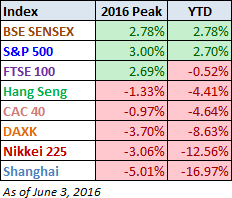
Here is a table of the 2016 performance, sorted from high to low, along with the interim highs for the eight indexes. Two indexes are now in the green year-to-date, down from three last week — the UK's FTSE slipping back into the red. Despite its big weekly rally, China's Shanghai Composite continues to merit the dubious distinction of biggest loser last week, down about 17 percent.
The Global Bear Market Perspective
The column chart is sorted by the least to worst declines from previous peaks as of the week's end. Seven of our eight watch list indexes had dropped into bear territory (a 20% decline), the S&P 500 being the sole exception. As of the latest close, four of the eight are in the bear zone, up from three the previous week, the Nikkei having slipped back into the bear zone.
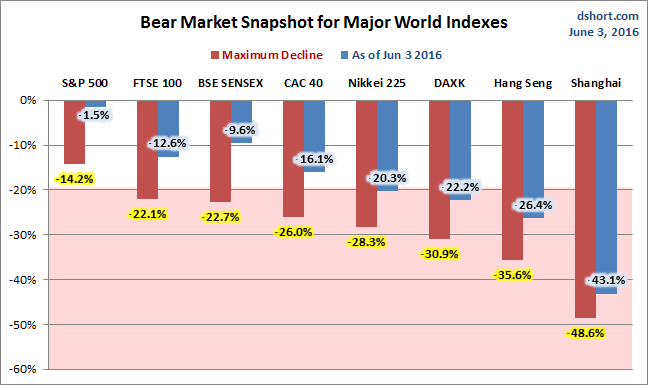
A Longer Perspective
The chart below illustrates the comparative performance of World Markets since March 9, 2009. The start date is arbitrary: The S&P 500, CAC 40 and BSE SENSEX hit their lows on March 9th, the Nikkei 225 on March 10th, the DAX on March 6th, the FTSE on March 3rd, the Shanghai Composite on November 4, 2008, and the Hang Seng even earlier on October 27, 2008. However, by aligning on the same day and using a log scale vertical axis, we get an excellent visualization of the relative performance. We've indexed each of the eight to 800 on the March 9th start date. The call-out in the upper left corner shows the percent change from the start date to the latest weekly close.
Here is the same visualization, this time starting on October 9, 2007, the closing high for the S&P 500, a date the is approximately the mid-point of the range of market peaks, which started on June 1st for the CAC 40 and ended on January 8, 2008 for the SENSEX.
For a longer look at the relative performance, our final chart starts at the turn of the century, again indexing each at 800 for the start date.
Check back next week for a new update.
Note: We track Germany's DAXK a price-only index, instead of the more familiar DAX index (which includes dividends), for consistency with the other indexes, which do not include dividends.
All the indexes are calculated in their local currencies.

